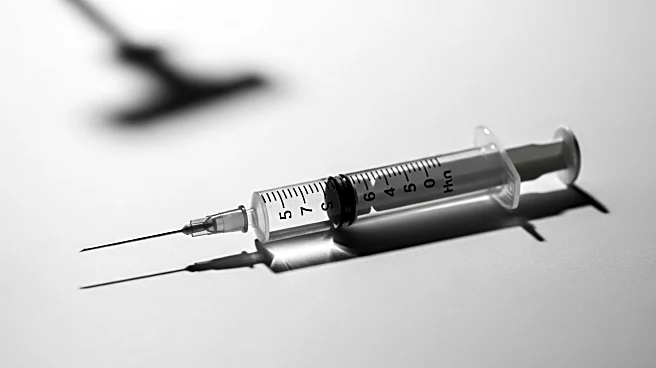What is the story about?
What's Happening?
Dr. Susan Monarez, former CDC Director, testified before the Senate Committee on Health, Education, Labor & Pensions (HELP) about Health and Human Services Secretary Robert F. Kennedy Jr.'s plans to alter the U.S. childhood vaccination schedule. Monarez claimed Kennedy intended to implement changes without scientific backing, having discussed these plans with President Trump. She was dismissed from her role after refusing to pre-approve CDC recommendations without evidence. Dr. Debra Houry, former CDC Chief Medical Officer, also expressed concerns about Kennedy's approach, fearing a resurgence of preventable diseases like polio and measles. The testimony comes ahead of a crucial Advisory Committee on Immunization Practices (ACIP) meeting, where potential changes to vaccine recommendations, such as the removal of the hepatitis B vaccine at birth, are anticipated.
Why It's Important?
The proposed changes to the vaccination schedule could have significant public health implications, potentially leading to a resurgence of diseases previously under control. The lack of scientific evidence supporting these changes raises concerns among health professionals and lawmakers about the politicization of vaccine policy. If implemented, these changes could undermine public trust in vaccines and the CDC, affecting vaccination rates and public health outcomes. The situation highlights the tension between political influence and scientific integrity in public health policy, with potential long-term consequences for disease prevention and control in the U.S.
What's Next?
The upcoming ACIP meeting will be closely watched for any official recommendations on vaccine schedule changes. Stakeholders, including medical organizations and public health officials, are likely to respond strongly to any decisions perceived as politically motivated. The outcome could influence future public health policy and the role of scientific evidence in decision-making. Additionally, there may be increased calls for Kennedy's resignation from both medical professionals and federal staffers, further intensifying the debate over vaccine policy and public health leadership.















